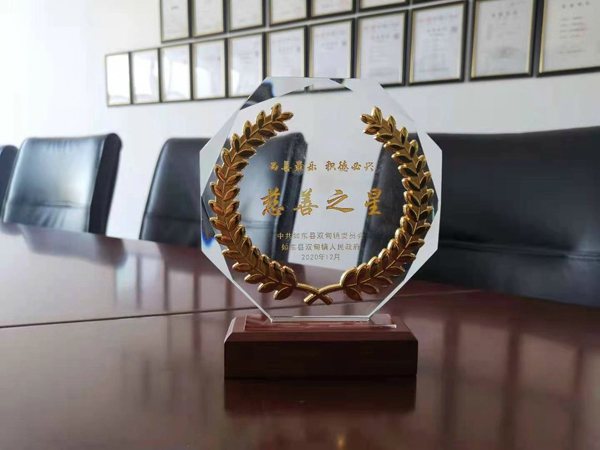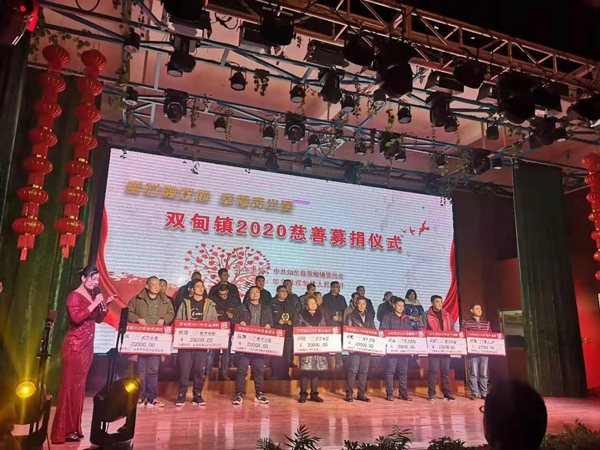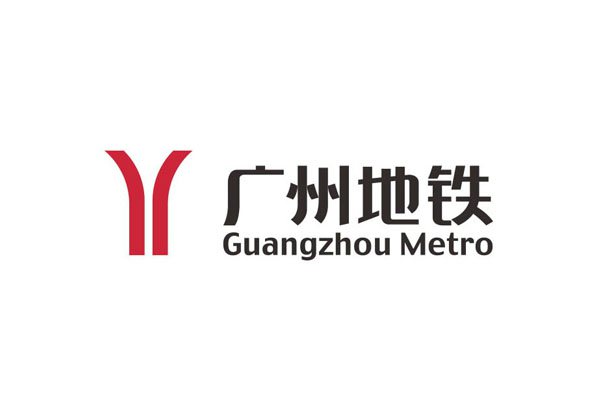About Songjiang Group-“Charity Star” China din Ansi China din Ansi Rubber Expansion Bellow Manufacturer
About Us Songjiang Group-“Charity Star” China din Ansi China din Ansi Rubber Expansion Bellow Manufacturer to win domestic and foreign customers’ praise and trust. “Charity Star” is the happiest to accumulate information for good deeds
“Charity Star” is the happiest for good deeds
China din Ansi Rubber Expansion Bellow Manufacturer-Shanghai Songjiang Group introduces to you: “Charity Star” is the happiest to accumulate information for good deeds. In December 2020, the Nantong Factory of Shanghai Songjiang Group participated in the 2020 Charity Fundraising Ceremony in Shuangdian Town And won the honor of Charity Star, the following is a detailed introduction.
Shuangdian Town 2020 Charity Fundraising Ceremony:
Issuing unit:
CPC Rudong County Shuangdian Town Committee
People’s Government of Shuangdian Town, Rudong County
Issue date: December 2020
Here’s what the Internet has to say about charity:
“Ci” refers to the love of the elders for the younger, and “kindness” refers to the friendship and mutual assistance between people. Charity is a kind of social undertaking in which people voluntarily donate love and assistance and engage in helping the weak and the poor. The objects, scope, standards, and projects of charitable undertakings shall be determined by the benefactors.
Charity is the love of humanity, the effort to increase the welfare of humanity. Increase love among human beings and expand human welfare using relief, aid, or donations.
World history is written about society from the times of Greece and Rome
A tradition of helping others; American history tells the story of how this tradition was brought to America by immigrants. Philanthropy in the United States prospered unprecedentedly after the Revolutionary War, such as organizing the American Anti-Slavery Association, providing New York workers with opportunities to receive education, founding the Children’s Rescue Association, establishing national shelters, hospitals, cultural organizations, etc.; after World War II, personal donations became tax-free. , the rich have been enthusiastic about philanthropy. For example, the Rockefeller family has donated more than 1 billion US dollars in a row for four generations; Bill Gates has invested 26 billion US dollars in charity, accounting for 54% of all his property, and even made a will early: 99% of his wealth will be donated to charity after his death.
Philanthropy in China also has a long tradition. In the Han and Tang dynasties, the monasteries of the poor, disaster relief, medical treatment, and slaughter were prosperous. Moreover, since the opening of the country, batches of social sages, celebrities, entrepreneurs, and retired cadres have silently engaged in charitable relief for flood disasters, poor students in primary and secondary schools, and poor patients with AIDS and cataracts. Statistics show that at least half of the rich require “secrecy” about the fact and amount of their donations.
It’s just that the people who get rich first are not as rewarding to society right now. According to data released by the China Charity Federation, 70% of its donations come from abroad, in Hong Kong and Taiwan, and less than 15% of the donations from the domestic rich are less than 15%. In 2009, 135 celebrities who were selected into various “philanthropist rankings”, donated a total of 985 million yuan, or about more than 100 million US dollars. The proportion of Chinese companies with total assets exceeding 10 million US dollars has made donations, but less than 1%. [1] From 2000 to 2004, the 50 largest philanthropists in the United States donated a total of $65 billion, an average of about $13 billion per year. Although there is little comparison between the two countries, does it also reflect the gap between their sense of social responsibility and public welfare? At present, the lack of the number of domestic charitable organizations, the limited ability to mobilize social resources, the lag in government tax incentives, the imperfection of charitable laws and regulations, and the lack of public credibility of charitable organizations have become obstacles to the development of charitable causes in my country. Is the “philanthropy concept” reflected in the “Encyclopedia of China” related in some way?
Philanthropy is not only a barometer of economic development but also a balancer to adjust the gap between the rich and the poor. The first distribution of income is realized through the market; the second distribution of income is realized through government regulation; under the influence of habits and morals, individuals voluntarily donate part or most of their disposable income to society, which should not be underestimated. the third income distribution. It helps to reduce polarization, weaken the “rich hatred” mentality, and is conducive to social harmony.









![[Exhibition hall] Take you to experience the rubber expansion joint Pn6 Pn10 Pn16 Pn25 exhibition hall](http://din-rubber-expansion-joint.com/wp-content/uploads/2022/06/Exhibition-hall-Take-you-to-experience-the-rubber-expansion-joint-Pn6-Pn10-Pn16-Pn25-exhibition-hall-1.jpg)
